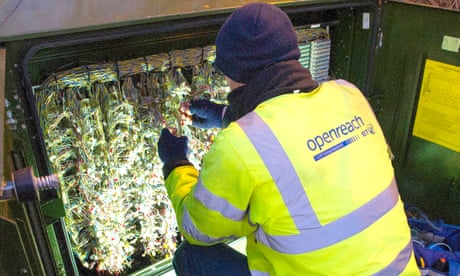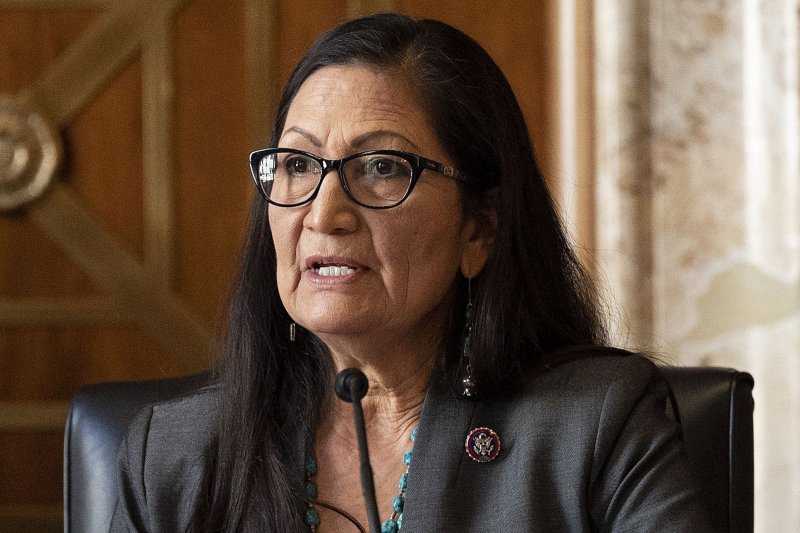Fears for home working as prospect of national BT strike grows
Ballot over job cuts and site closures could mean first nationwide industrial action since 1987

The Communication Workers Union will hold a ballot in the coming weeks and says a yes vote will have a ‘massive impact’ on the network. Photograph: Andrew Matthews/PA
Rupert Jones
Sun 14 Mar 2021
BT is facing the threat of its first national strike since 1987 as a row about planned job cuts and site closures intensifies.
The Communication Workers Union, which represents 45,000 BT Group staff, will hold the ballot in the coming weeks and said that a yes vote would have a “massive impact” on the network.

BT warns rural areas will suffer broadband delays unless government steps up
The ballot will cover workers at BT, EE and Openreach, which controls most of the UK’s broadband network, and could lead to walkouts in late spring if passed, at a time when millions of people will still be working from home and heavily reliant on their broadband connections.
Andy Kerr, the CWU’s deputy general secretary, said: “This is a decision we did not want to take. Last year our members delivered a huge yes vote in a consultative ballot but BT Group are still in denial.
“We want to assure businesses and the public that we do not want to see disruptions to services. This action is about protecting our members but also it is about protecting the service they provide to homes and businesses.
“My message to BT Group is that our door is still open, and we want to resolve this dispute, but this will require a huge shift in attitude from the company. My message to our members is to continue supporting their union and prepare to deliver a massive yes vote.”
BT’s chief executive, Philip Jansen, wants to accelerate BT’s shift to fibre broadband and 5G networks, and has also discussed the possibility of selling a stake in its Openreach arm. Jan du Plessis unexpectedly resigned as chairman earlier this month amid claims that Jansen was frustrated at the pace of change.
According to the union, the company wants to close hundreds of sites across the country over the next few years and concentrate the majority of its operations at 30 key locations.
Dave Ward, the CWU’s general secretary, said BT, Openreach and EE staff had been key workers during the coronavirus pandemic: “They have kept the country connected, held together the homeworking revolution and enabled the wheels of the economy to keep moving – all while dealing with the realities of the pandemic themselves. Their reward from BT Group has been the threat of compulsory redundancy or the closure of their workplace.”
A BT spokesperson said it was going through a period of “immense change” that would result in it having fewer staff. “Such change is always difficult – that’s why we have been discussing our plans with the unions and will continue to do so.
“We’re disappointed that CWU is contemplating industrial action, though the union has not started the formal industrial action process. We remain committed to discussing the concerns they have raised.”
Rupert Jones
Sun 14 Mar 2021
BT is facing the threat of its first national strike since 1987 as a row about planned job cuts and site closures intensifies.
The Communication Workers Union, which represents 45,000 BT Group staff, will hold the ballot in the coming weeks and said that a yes vote would have a “massive impact” on the network.

BT warns rural areas will suffer broadband delays unless government steps up
The ballot will cover workers at BT, EE and Openreach, which controls most of the UK’s broadband network, and could lead to walkouts in late spring if passed, at a time when millions of people will still be working from home and heavily reliant on their broadband connections.
Andy Kerr, the CWU’s deputy general secretary, said: “This is a decision we did not want to take. Last year our members delivered a huge yes vote in a consultative ballot but BT Group are still in denial.
“We want to assure businesses and the public that we do not want to see disruptions to services. This action is about protecting our members but also it is about protecting the service they provide to homes and businesses.
“My message to BT Group is that our door is still open, and we want to resolve this dispute, but this will require a huge shift in attitude from the company. My message to our members is to continue supporting their union and prepare to deliver a massive yes vote.”
BT’s chief executive, Philip Jansen, wants to accelerate BT’s shift to fibre broadband and 5G networks, and has also discussed the possibility of selling a stake in its Openreach arm. Jan du Plessis unexpectedly resigned as chairman earlier this month amid claims that Jansen was frustrated at the pace of change.
According to the union, the company wants to close hundreds of sites across the country over the next few years and concentrate the majority of its operations at 30 key locations.
Dave Ward, the CWU’s general secretary, said BT, Openreach and EE staff had been key workers during the coronavirus pandemic: “They have kept the country connected, held together the homeworking revolution and enabled the wheels of the economy to keep moving – all while dealing with the realities of the pandemic themselves. Their reward from BT Group has been the threat of compulsory redundancy or the closure of their workplace.”
A BT spokesperson said it was going through a period of “immense change” that would result in it having fewer staff. “Such change is always difficult – that’s why we have been discussing our plans with the unions and will continue to do so.
“We’re disappointed that CWU is contemplating industrial action, though the union has not started the formal industrial action process. We remain committed to discussing the concerns they have raised.”










